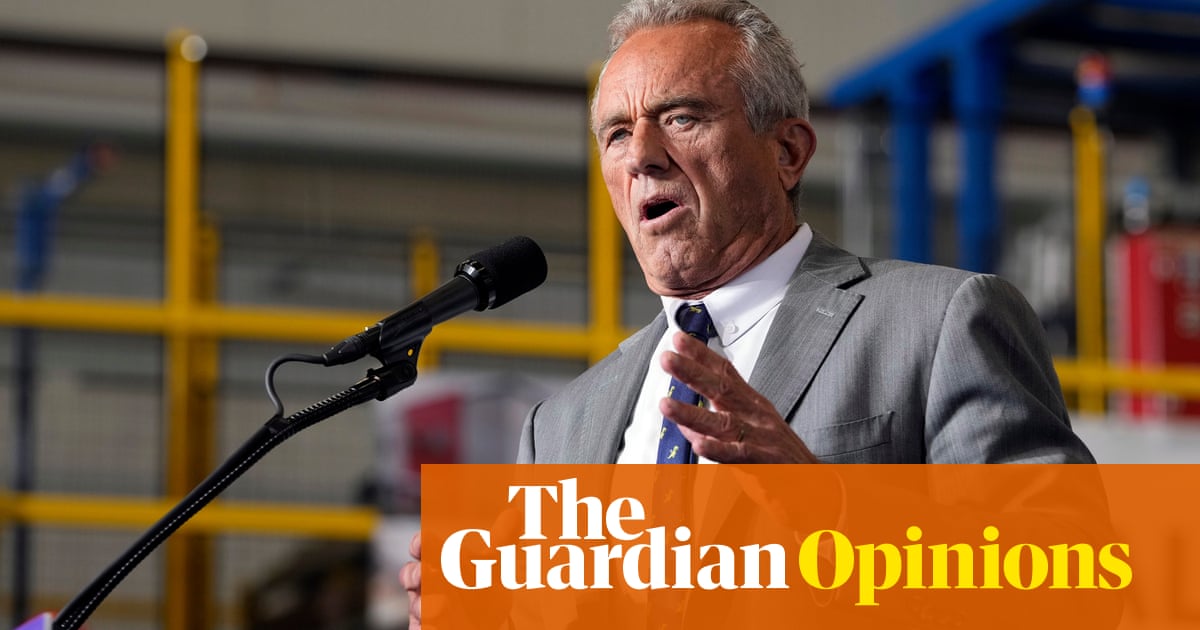Donald Trump may have won a second term in the White House just last week, but his recent administration appointments have already heightened fears among some who believe his return to the White House will lead to an extremist agenda.
On immigration, Trump has chosen loyalists and hardliners: Stephen Miller will serve as deputy chief of staff for policy and Department of Homeland Security adviser; Tom Homan as “border czar”, and Kristi Noem, the South Dakota governor, will lead the Department of Homeland Security.
Miller, previously a Trump adviser, played a significant role in crafting Trump’s immigration policies in his first administration, including the Muslim ban. Homan was the former acting director of US Immigration and Customs Enforcement (ICE) under Trump’s first administration and a supporter of the family separation policy. Noem has been a vocal and strong Trump ally for the better part of a decade.
This trio is likely to help bring to fruition Trump’s campaign promise of the mass deportation of millions of undocumented migrants living in the US.
On Tuesday, Trump shocked the Pentagon and the wider defense world by appointing the army veteran and Fox News host Pete Hegseth as the new defense secretary.
A staunch conservative, Hegseth opposes what he calls “woke” military programs aimed at promoting equity and inclusion and has questioned the role of women in combat. He has also advocated for pardoning service members accused of war crimes.
He reportedly formed a friendship with Trump during his appearances on Fox & Friends.
Speaking with Politico, Eric Edelman, who served as the Pentagon’s top policy official during the Bush administration, said that Trump’s choices so far revealed that he “puts his highest value on loyalty” adding that one of the main criteria appeared to be “how well do people defend Donald Trump on television?”
Paul Rieckhoff, founder of Independent Veterans of America, criticized Hegseth’s appointment on X, describing the Fox News host as “undoubtedly the least qualified nominee for SecDef in American history” and “the most overtly political”.
“Brace yourself, America,” he added.
Mike Huckabee, the former Arkansas governor who previously claimed “there is no such thing as a West Bank”, was chosen as the next US ambassador to Israel, indicating a return to an explicitly pro-Israel administration reminiscent of Trump’s first.
The Jewish Democratic Council of America criticized Huckabee’s nomination, stating that his “extremist views” on the Israeli-Palestinian conflict would not advance US national security or prospects for peace.
Signaling a more combative US position toward the United Nations, the New York representative Elise Stefanik has been chosen to be the next ambassador. Stefanik has called to defund the United Nations Relief and Works Agency for Palestine Refugees.
Stefanik gained attention last year after her aggressive questioning of three university presidents over antisemitism on campuses.
Gerry Connolly, a Democratic representative, criticized the appointment of Stefanik, telling the Hill it was a “gift to Vladimir Putin” and adding that “she abandoned Ukrainians in April” and “this further signals Donald Trump and Maga’s retreat from the global stage”.
On Saturday, Trump announced that Michael Pompeo, the former secretary of state who has criticized the former president and his policies over the years, and Nikki Haley, the former UN ambassador who challenged Trump in the Republican primary, would not be part of his second administration.
The rejection of Haley and Pompeo may also be viewed as the rejection of two individuals who have backed US support for Ukraine.
John Ratcliffe, a close ally of Trump and former director of national intelligence, has been appointed as director of the Central Intelligence Agency.
after newsletter promotion
Ratcliffe served as director of national intelligence at the end of Trump’s first term, during which he faced accusations from Democrats and former officials of declassifying intelligence to aid Trump and attack political opponents such as Joe Biden, a claim his office has denied.
Lee Zeldin, the former New York congressman, has been chosen to serve as administrator of the Environmental Protection Agency, leading to criticism from environmental groups.
As a representative, Zeldin voted against the Inflation Reduction Act, which directed billions of dollars to expand clean energy and reduce greenhouse gas emissions, and also opposed climate-related legislation, according to the environmental advocacy group League of Conservation Voters.
Ben Jealous, Sierra Club’s executive director, called Zeldin an “unqualified, anti-American worker who opposes efforts to safeguard our clean air and water”, adding that his appointment “lays bare Donald Trump’s intentions to, once again, sell our health, our communities, our jobs, and our future out to corporate polluters”.
Elon Musk, the world’s richest man, along with Vivek Ramaswamy, a former Republican presidential candidate, will lead the Department of Government Efficiency, Trump said, which aims to cut federal bureaucracy by roughly a third.
Although not a government agency, it will operate externally to drive significant reforms and introduce an entrepreneurial approach to government.
Musk’s appointment drew criticism from Public Citizen, a progressive consumer rights non-profit.
“Musk not only knows nothing about government efficiency and regulation, his own businesses have regularly run afoul of the very rules he will be in position to attack,” co-president Lisa Gilbert said in a statement.
Marco Rubio, the Florida senator known for his hardline policies on China, Iran and Venezuela, is expected to be appointed as Trump’s secretary of state, and Trump has asked Mike Waltz, a congressman, retired Green Beret and a longtime ally known for his tough stance on China, to become his national security adviser.
Notably, Rubio has received support from John Fetterman, the Democratic senator who stated on Tuesday that despite their political differences, he believes Rubio is a strong choice and looks forward to voting for his confirmation.
Other appointments have included Susie Wiles, Trump’s 2024 campaign manager, as chief of staff; the real estate investor and longtime friend and Trump donor Steve Witkoff to be his special envoy to the Middle East; and William Joseph McGinley, who served as cabinet secretary in the first term, as White House counsel, among others.
In his announcement, Trump said McGinley would help him “advance our America First agenda” while “fighting for election integrity and against the weaponization of law enforcement”.

 German (DE)
German (DE)  English (US)
English (US)  Spanish (ES)
Spanish (ES)  French (FR)
French (FR)  Hindi (IN)
Hindi (IN)  Italian (IT)
Italian (IT)  Russian (RU)
Russian (RU)  1 week ago
1 week ago
























Comments